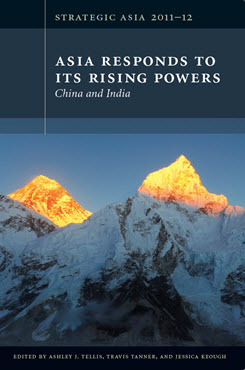Great Games in Central Asia
The strategic dynamic created by the interplay of large powers—China, India, the U.S., and Russia—and the smaller, resource-rich Central Asian states is complex and constantly shifting. China’s robust economy and geographic position tilt the competition in its favor and offer opportunities available to no other actor. India is at a disadvantage, but its fortunes could change depending on its relationships with Russia and the U.S., growing demands for Indian technology, and a generational change in Central Asia that results in a greater appreciation for India’s democratic values. Russia remains the critical balancer in the Central Asian competition, and significant advantages will accrue to any future Russian partner.
EXECUTIVE SUMMARY
This chapter explores the competition for influence in Central Asia between China, India, and other powers, as well as Central Asian responses.
MAIN ARGUMENT
The strategic dynamic created by the interplay of large powers—China, India, the U.S., and Russia—and the smaller, resource-rich Central Asian states is complex and constantly shifting. China’s robust economy and geographic position tilt the competition in its favor and offer opportunities available to no other actor. India is at a disadvantage, but its fortunes could change depending on its relationships with Russia and the U.S., growing demands for Indian technology, and a generational change in Central Asia that results in a greater appreciation for India’s democratic values. Russia remains the critical balancer in the Central Asian competition, and significant advantages will accrue to any future Russian partner.
POLICY IMPLICATIONS
- China’s advantage in Central Asia is large and growing. Beijing has cornered vital energy resources and used its abundant funds to promote their transport to China. But this strategy contains inherent contradictions and could prove fragile.
- India’s presence in Central Asia has been tentative, and its strategy seems piecemeal. India trails China in the competition for Central Asian energy, and New Delhi’s security relationship with Tajikistan lacks deep roots, although its position in Kazakhstan and Turkmenistan may be strengthening.
- In Central Asia, only Kazakhstan stands out for its strategic thinking. Kyrgyzstan, Tajikistan, and Turkmenistan are largely reactive to other actors in the region. Uzbekistan could be a game changer, but it remains isolated. Central Asian countries have yet to work together to advance common interests in the face of large-power competition, and there is little prospect of this happening in the near future.
Strategic Asia
The Strategic Asia annual edited volume incorporates assessments of economic, political, and military trends and focuses on the strategies that drive policy in the region. Learn more about Strategic Asia.


